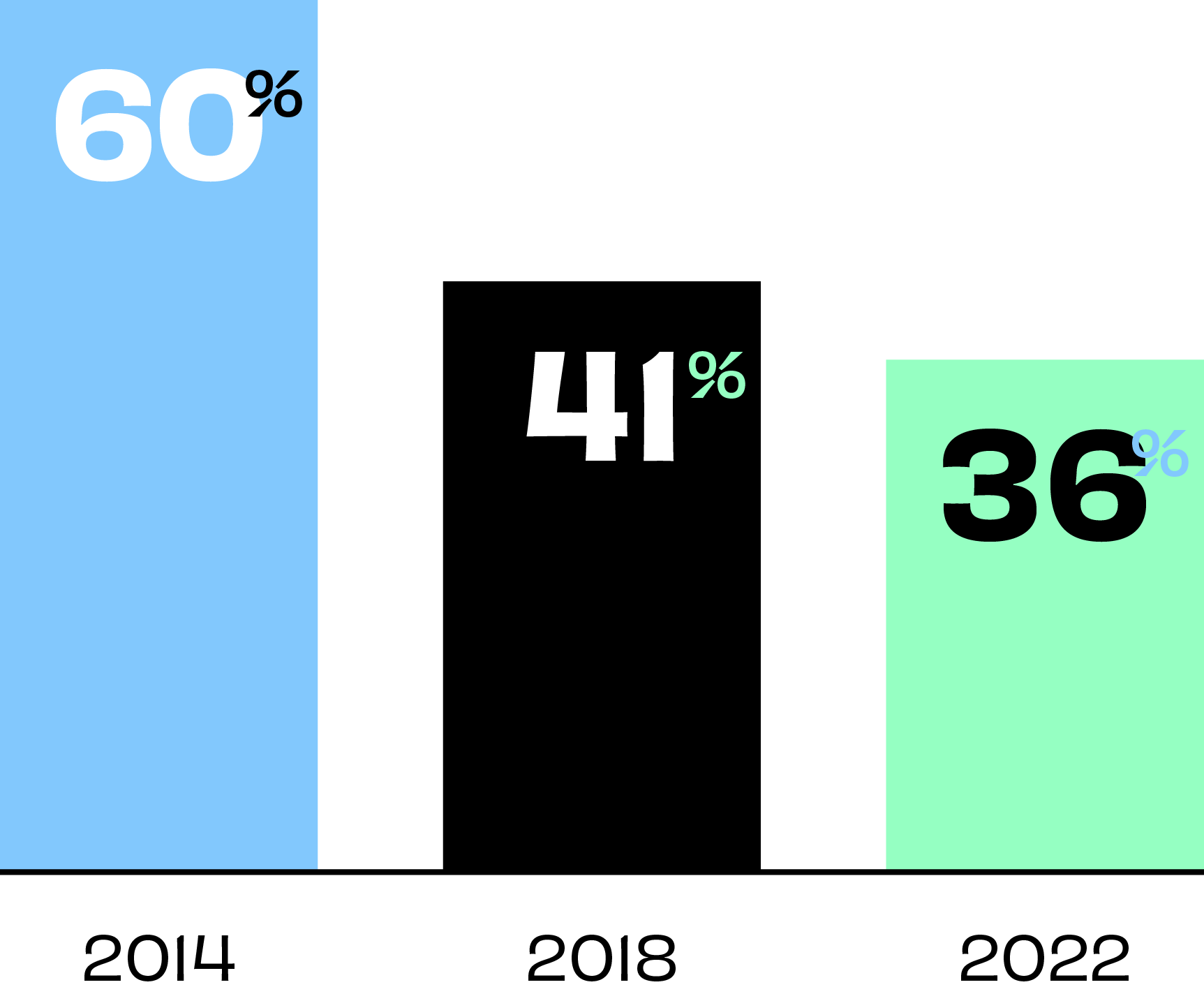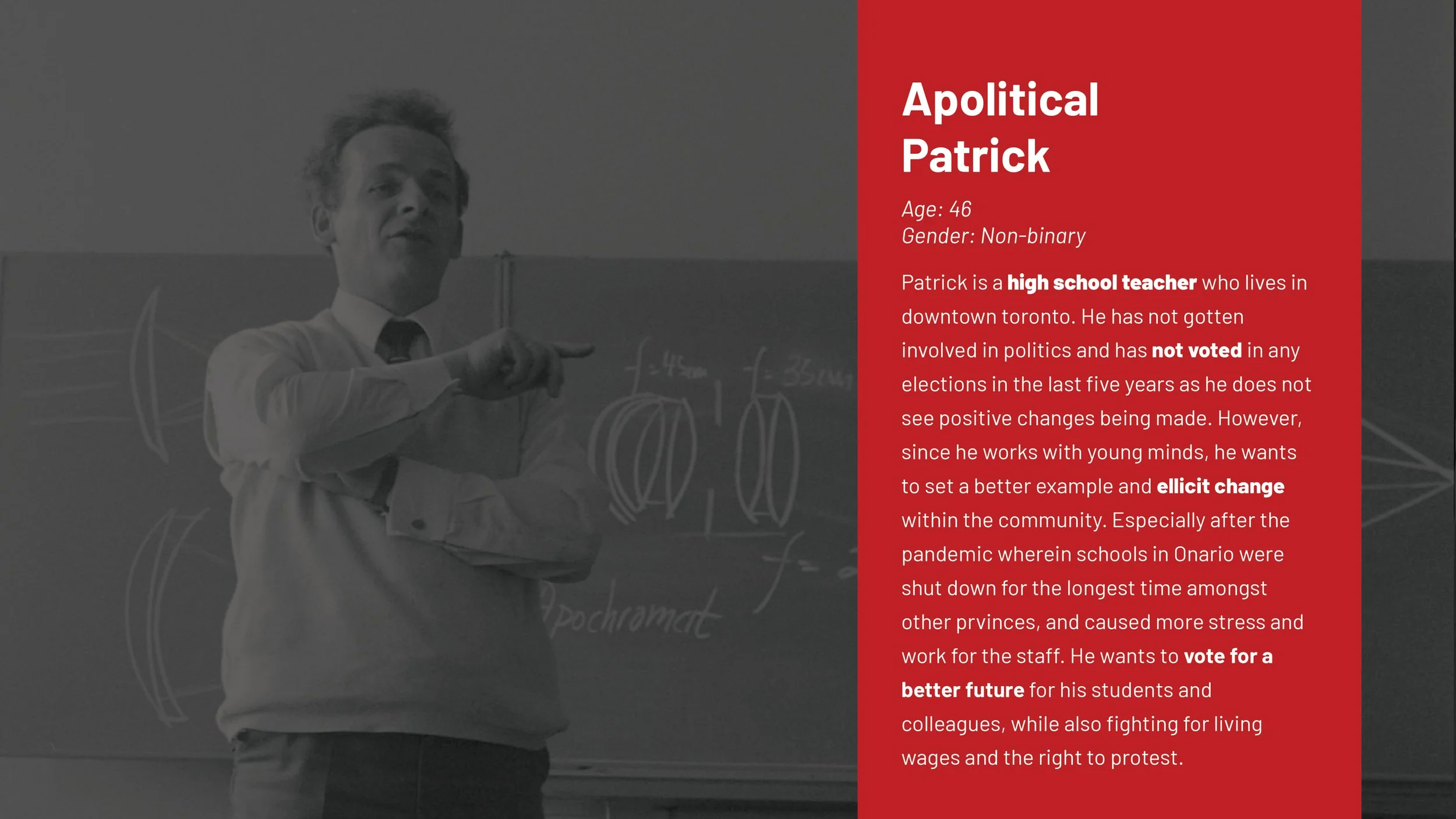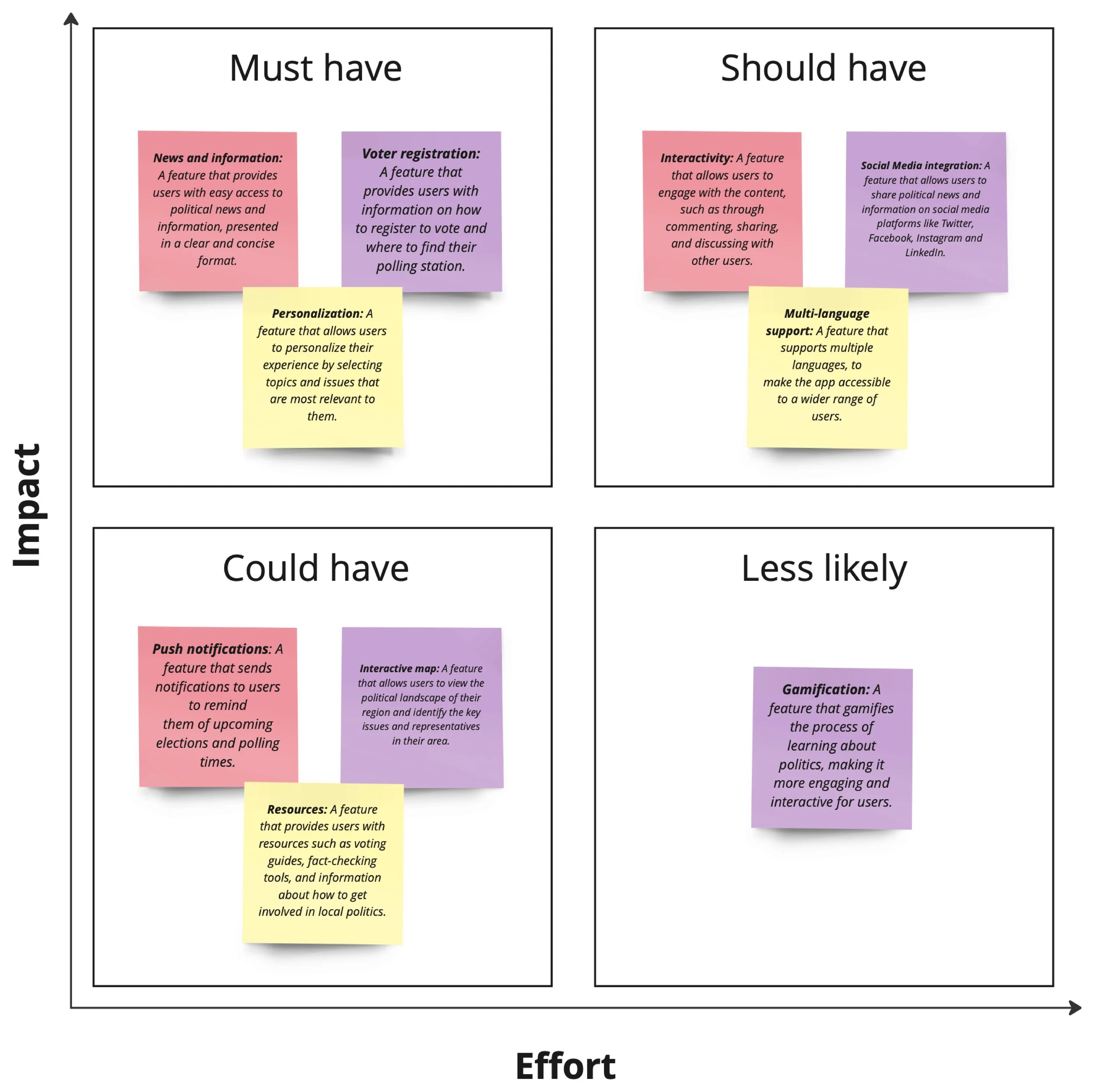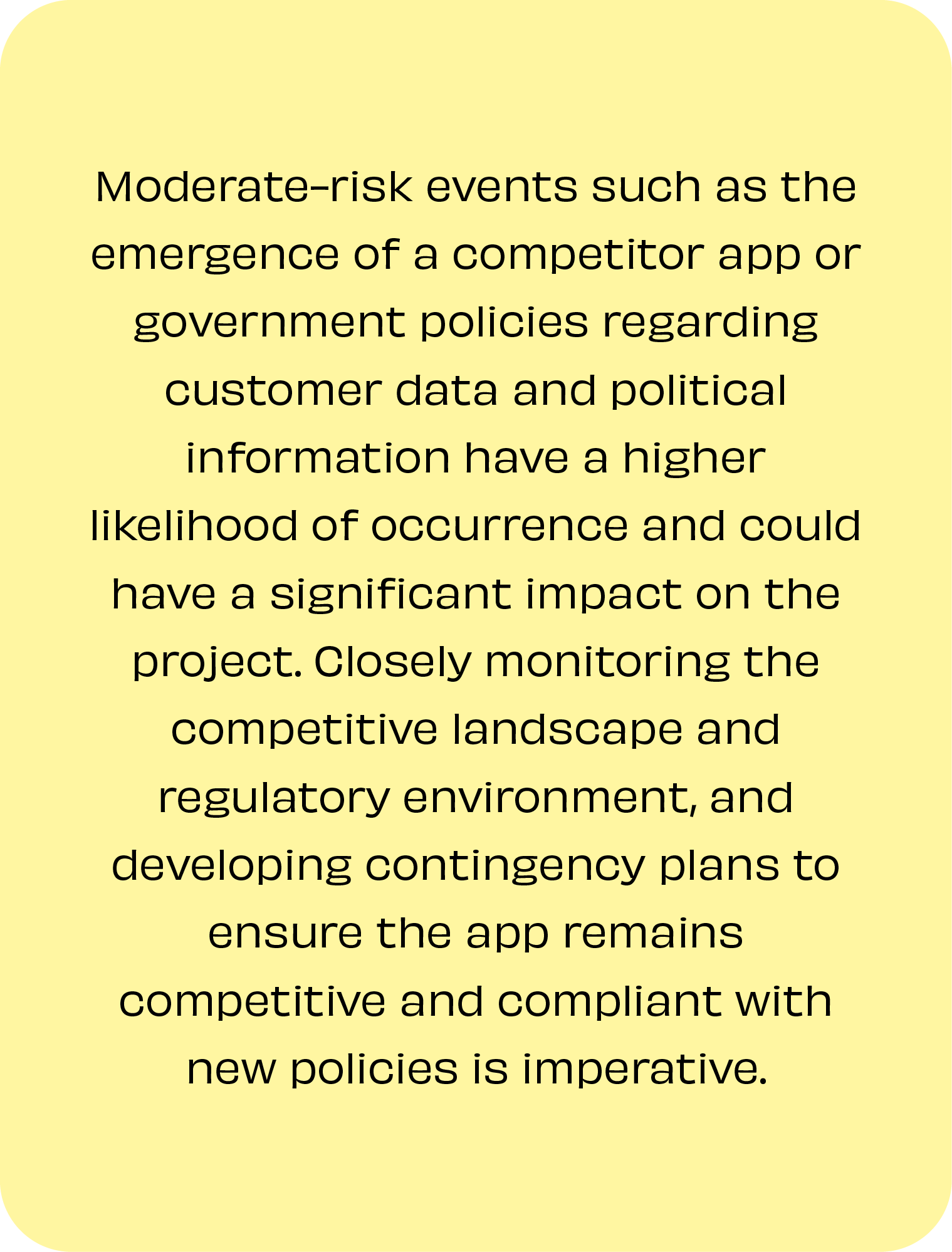uCan - Simplifying Politics
A digital product idea, that aims to improve the way Canadians engage with politics.
Problem
Lowest voter turnout in Ontario municipal elections and citizens’ increasing lack of faith in public institutions.
Solution
Demystifying political information to help Canadians be better informed and engaged in politics.
Impact
Improved political engagement and increased voter turnout.
Context
Voter turnout in Canadian municipal politics has been on the decline in recent years, with factors such as the COVID-19 pandemic causing people to become more isolated and less connected to their communities and political processes. This decline in voter turnout is a warning signal about the state of public interest, engagement, and participation in democracy and political institutions, especially in municipal politics. In 2014, Toronto had a voter turnout of 60%, but this dropped to 36% in the 2022 election.
Problem
Staying informed and engaged with political events can be challenging as information is widely available on various platforms such as traditional media, online news sources, government websites, and direct communication from political campaigns. It can be difficult for citizens to keep track of candidates, their positions and policies, leading to disengagement and lack of understanding. The ever-changing media landscape adds to the challenge, making it hard for voters to stay informed and engaged with politics.
How might we improve the involvement of Canadian citizens in municipal politics and increase the voter turnout in elections?
Hypothesis
We believe that changing the way Canadians educate themselves about local politics into a simple and intuitive process will improve their political engagement and increase voter turnout.
Vision
Demystifying political information to help Canadians be better informed and engaged in politics.
Value Proposition
uCan provides a consolidated platform for Canadian citizens to learn, engage, and participate in political discourse.
JTBD - Jobs To Be Done
BMC - Business Model Canvas
VPC - Value Proposition Canvas
Research Process
To investigate the issue of declining voter turnout in Canadian municipal politics, our research process involved the following steps:
Semi-structured interviews: We conducted 10 semi-structured interviews with a diverse group of citizens aged between 19 and 60. The insights gathered from these interviews provided us with valuable information regarding citizens' motivations, priorities, and challenges in engaging with municipal politics.
Secondary research: In addition to the interviews, we analyzed the municipal politics landscape through various sources such as official reports, policy update documents, media coverage, and social media platforms like Twitter and Reddit. This enabled us to gain a comprehensive understanding of the local political discourse, issues, and positions of various stakeholders.
Analysis: The data obtained from the interviews and secondary research were collated and analyzed using an affinity map and a thematic analysis. This process allowed us to identify codes and common themes, leading to a better understanding of the needs, pains, and jobs-to-be-done of citizens in relation to municipal politics.
Business design: Based on our insights, we created a value proposition canvas and a lean business canvas to develop a plausible business model that could address the identified needs and pains of citizens. This helped us identify the key elements of our business model and the value proposition we would be delivering to citizens.
Overall, our research process enabled us to gain a deep understanding of both the functional and emotional aspects of citizens' involvement in politics. By developing a value proposition that addressed the needs and pains of citizens and creating a viable business model, our research provides a potential solution to address declining voter turnout in Canadian municipal politics.
Personas
Through our research and interviews, we created 3 personas representing the working class, millennials and Gen Z who wished to be politically engaged and would eventually form our user base.
Minimum Viable Product (MVP)
Our research process led us to ideate an MVP to address declining voter turnout in Canadian municipal politics, which we determined to be an email newsletter delivering succinct political news. The MVP would cover a variety of topics, including local elections, policies, and public meetings, empowering citizens to be more politically informed and engaged. The newsletter would also provide opportunities for citizens to get involved in local politics, encouraging them to become more politically active and engaged in their community. The MVP would ultimately address the needs and pains of citizens by providing them with a convenient and accessible way to stay informed about local politics and contribute to their community.
Measuring Success of the MVP
Sign-up rate: Tracking the number of users who sign up to receive the newsletter and compare it to the number of people who discover the newsletter.
Click-through rate: Tracking the number of users who click on links within the newsletter and compare it to the number of newsletters that are opened.
Engagement rate: Track how engaged users are with the content by monitoring the number of shares, comments, and other forms of engagement.
Retention rate: Track the number of users who continue to receive the newsletter over time and compare it to the total number of sign-ups.
Feedback: Gather feedback from users through NPS surveys to understand their satisfaction with the newsletter and identify areas for improvement.
ROI: Track the Return On Investment by comparing the cost of the newsletter and marketing campaigns to the value provided to subscribers.
Feature Prioritization
Considering the MVP was successful, the immediate and primary features of the uCan application would likely include:
Must-have features
News and information: A feature that provides users with easy access to political news and information, presented in a clear and concise format.
Voter registration: A feature that provides users with information on how to register to vote and where to find their polling station.
Personalization: A feature that allows users to personalize their experience by selecting topics and issues that are most relevant to them, for e.g. location based news
Should-have features
Interactivity: A feature that allows users to engage with the content, such as through commenting, sharing, and discussing with other users.
Social Media integration: A feature that allows users to share political news and information on social media platforms like Twitter, Facebook, Instagram and LinkedIn.
Multi-language support: A feature that supports multiple languages, to make the app accessible to a wider range of users.
Could-have features
Push notifications: A feature that sends notifications to users to remind them of upcoming elections and polling times.
Interactive map: A feature that allows users to view the political landscape of their region and identify the key issues and representatives in those areas.
Resources: A feature that provides users with resources such as voting guides, fact-checking tools, volunteering and information about how to get involved in local politics.
Less likely features:
Gamification: A feature that gamifies the process of learning about politics, making it more engaging and interactive for users.

Product Positioning
uCan is a civic platform that empowers the disengaged and skeptical Gen Z and millennial generations to understand politics better. Our user-friendly platform delivers up-to-date and succinct political information that rekindles hope and inspires meaningful engagement in politics.
Tracking Success Metrics
When determining our success metrics, we were mindful of our product's goals and objectives, including the ultimate goal of increasing voter turnout. However, we recognized that this goal is outside of the app's direct control and may not be the most feasible North Star metric. Instead, we identified the voter registration feature within our application as the North Star Metric, which allows us to measure the impact of our product on facilitating voter registration. In addition, we established other key metrics to track, which will enable us to gauge the effectiveness of our app in achieving its goals and objectives. By focusing on these metrics, we can better understand the impact of our app and make informed decisions for further improvement.
Risk Analysis
We identified several potential risks, each with a different level of probability and impact. By categorizing these risks based on their likelihood and potential impact, we can prioritize our risk management efforts and develop effective mitigation strategies.
Potential Impact & Reflections
uCan has the potential to drive positive impact by empowering and educating Gen Z and Millennial users in Ontario and Canada, equipping them with accurate and reliable political information. This would enable users to engage in informed conversations, evaluate the progress and shortcomings of their local elected officials, and become more politically active. As a result, the app has the potential to increase political engagement among younger generations, promoting political accountability and enhancing transparency in the democratic process. By encouraging more informed voting and fostering greater political discourse, uCan could play a vital role in strengthening democracy and empowering marginalized groups. In short, uCan has the potential to be a valuable tool for citizens seeking to take an active role in shaping the political landscape of their communities and beyond.













